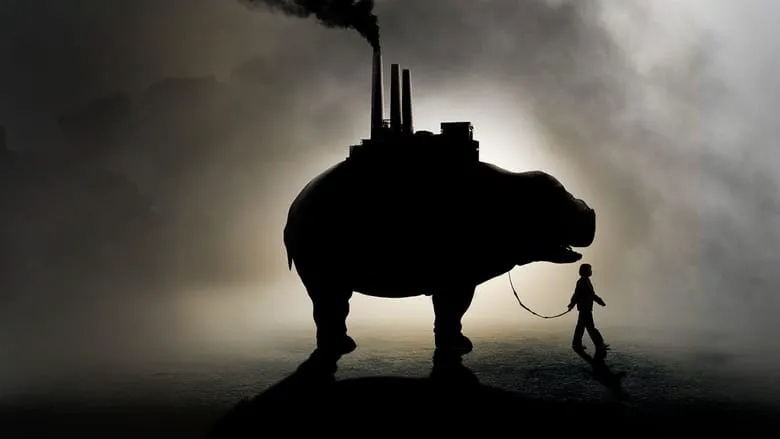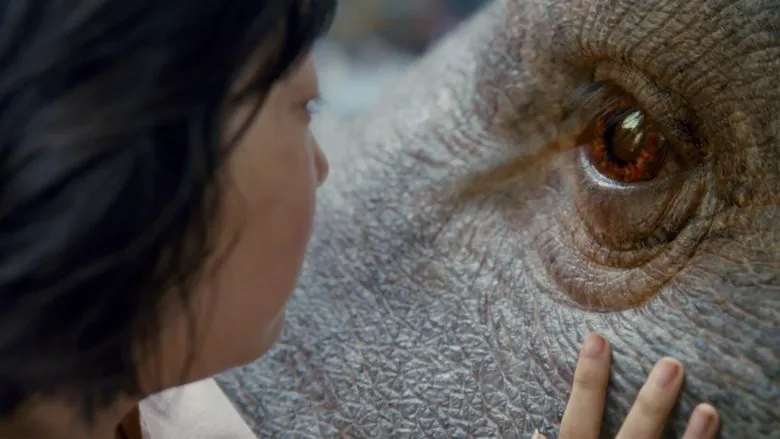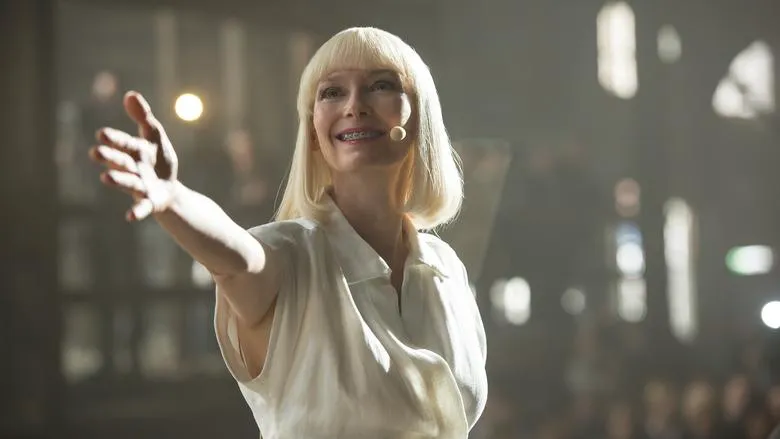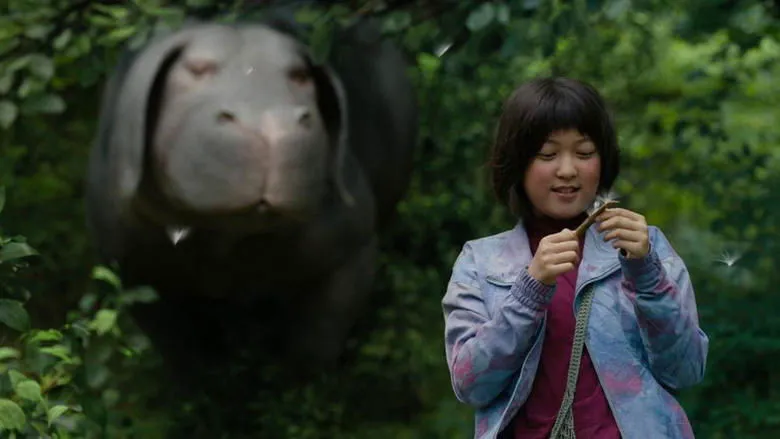Okja: A Satirical Fairy Tale with a Bite
A funny satirical comedy about a girl’s fight against a multinational corporation is somewhat marred by a simplistic, childlike approach to the plot, as if it were written for another Disney cartoon.
In a bid to combat global hunger, the Miranda Corporation genetically engineers a new breed of pig – animals the size of hippos are easy to care for, undemanding in their diet, and their meat tastes better than any delicacy. There’s just one problem: people don’t trust genetically modified products, so the company launches an unprecedented campaign of falsification. The altered pigs are dubbed a newly discovered Chilean breed and sent to various corners of the globe for research purposes, so that in 10 years, people can be convinced that there’s nothing to fear from the new breed. A giant piglet named Okja has lived for ten years on a high-mountain South Korean farm, but when the time comes to take her away from her owners and turn her into bacon, ham hocks, and chops, it turns out that fourteen-year-old Mija is extremely attached to Okja. So attached that she’s ready to cross half the world just to save her clumsy friend from the butcher’s ax…

At the Cannes premiere, “Okja” was booed by the audience, but this was not due to the quality of the film, but to the fact that the organizers of the screening launched the film with the wrong aspect ratio.
It is generally accepted that the comedy genre today is not going through the best of times – the plots of entertainment films have become noticeably simpler, the creators of such films rely on cheap gags, jokes below the belt, or outright stupidity multiplied by the audience’s unpretentiousness. There’s simply no point in talking about satire, a much more subtle, deep, and inventive level of comedy – the times of “Dr. Strangelove,” “Wag the Dog,” or even Ryazanov’s “Garage” seem to have gone forever. However, the pulse line of the satirical genre has not yet turned into a straight line; the film by South Korean director Bong Joon-ho, “Okja,” a Netflix video service project that, unfortunately, only made it to the big screens as part of film festivals, should be a noticeable jolt for viewers, critics, and even fellow filmmakers.

“Okja” is an exemplary satire, but this is not only its advantage, but also a significant disadvantage, which, however, is characteristic of films that aim for something grandiose. And the scope of the film is truly regal; the authors happily “kick” international corporations, the consumer society, environmentalists, cruel policemen, and unprincipled television people, and they do it really fun. “Okja” is a funny movie, despite the violence that regularly flashes on the screen. Slaps in the face are given as deserved: human rights activists are indeed sometimes ready to fight for peace until the complete destruction of the world, mega-corporations easily resort to any fraud, collusion, and deception just to make a profit, and consumers easily succumb to self-deception, forgetting about simple human feelings of attachment, friendship, and love.

A Childlike Perspective on Serious Issues
However, Bong Joon-ho expresses his criticism in a somewhat naive, almost childlike format. “Okja” is like a mix of Pixar and Disney cartoons, and in general, like a children’s film like “Free Willy,” “Flipper,” and other “Dolphin Tales”: a girl loves her pet, and she is separated from it. Horror, anger, regret, but no acceptance – go ahead, save your pet! On the way, Mija, an angular South Korean girl, imperceptibly similar to Leeloo or Moana, inevitably meets comical characters who try their best to look funny. A TV presenter, for example, throws out capers, and literally, the main animal rights activist smashes his face to blood for his negligent accomplice, the main villain caricaturedly tries a golden figurine on the tooth, and the ordinary people who occasionally appear in the frame resemble empty vessels that are easily filled with one emotion or another. It’s all funny, but somewhat naive and even somewhat infantile.

Screenwriter Jon Ronson was invited by director and idea author Bong Joon-ho specifically to work on English-speaking characters and make New York, where half of the film takes place, recognizable.
A Surprisingly Mature Ending
However, the ending of the film turned out to be very “adult,” even “old-fashioned” – the main character agreed to be content with little, chose a quiet home happiness in a circle of a few loved ones instead of saving the world. This, perhaps, hides its own irony, a satire on our idea of paintings of this genre, which makes us believe in the victory of Good over Evil. “Okja” is not about victory, but about willingness to compromise and about acquiescence, about the superiority of the personal over the general or someone else’s; the girl in the film fervently fights for her favorite pig, but easily accepts the death of all other animals.

Stellar Performances
Criticism of awkward plot twists and deliberately thick strokes where subtlety is required does not, however, concern the acting work – that’s what is unconditionally excellent in “Okja” and with any claims to the script, these are the characters. Tilda Swinton, who plays the roles of two sisters with dissimilar characters, is certainly good, Paul Dano is magnificent in the role of the leader of aggressive “greens”, Giancarlo Esposito is as always elegantly assembled, Jake Gyllenhaal is delightfully funny and almost unrecognizable in a magnificent mustache. Special words of admiration are deserved by the young An Seo-hyun – the girl had to play many scenes with a pig later drawn on a computer, but in no single frame is it possible to notice falsity in the actress’s emotions and movements.
Final Thoughts
“Okja” was deservedly given ovations at the screening as part of the Cannes Film Festival and praised by critics – we really haven’t seen such scathing and accurate satirical statements for a long time. However, one cannot help but notice some simplification of forms and one-color judgments of the authors. Let’s not be afraid to be known as grumpy old men and note – everything was better before. The pigs were smaller, but the humor was more subtle. And the heroes didn’t buy so easily.